The men have all been declared human trafficking victims by authorities and the local community north of Phuket in what amounts to an uprising over the rights of the region's boatpeople.
All 132 of the men should be returned to their homes in Bangladesh as speedily as possible. It would be unfair if the Bangladeshi citizens were taken back but the Rohingya refugees, who have families in Bangladesh and have lived there in some cases for 20 years, were left behind in Thailand.
Otherwise, with more than 130 extra mouths to feed, even the generosity of the local Catholic, Muslim and Buddhist activists who banded together to help the district chief of the Thai township of Takuapa will be stretched.
Thailand now has the opportunity to prove it is serious about removing the country from its bottom level rating of Tier 3, achieved in this year's US State Department Trafficking in Persons report.
Much has since been promised but little has actually been delivered.
Five years ago, Phuketwan journalists working with the South China Morning Post newspaper revealed the inhumane pushbacks of hundreds of Rohingya from Thailand.
The pushbacks, by the military, led to the deaths of hundreds at sea.
That horrendous policy was replaced by a ''help on'' policy under which the Royal Thai Navy intercepted vessels laden with would-be refugees and gave them food and water to keep sailing towards Malaysia or some other country.
In the years since the policy was introduced, the ''help on'' regime has become ''help yourself.''
Human trafficking, virtually free from serious enforcement, has flourished along Thailand's Andaman coast. And now, in a new development, the Bangladeshi kidnappers are also helping themselves.
It is believed that the 132 men, all kidnapped without knowledge of their families, were destined for sale to fishing trawlers or factories in Malaysia or Indonesia.
It's not known what has happened to the others among the 310 people brought to a secret island off the coast of Thailand on the same vessel. Among them were seven children and three women.
Authorities in Bangkok have now been made fully aware of developments in Takuapa.
The kidnap twist in the saga of the boatpeople off Thailand comes with the sailing season just beginning, and many thousands of boatpeople expected to flee on boats from Burma.
Adding the Bangladeshi kidnap victims to the mix shows how strong the trafficking pipeline has become through five years of consistent growth for the industry.
Will Thailand's military government, making pronouncements about transparency and honesty, shut down the traffickers and end the trade in people through Thailand?
Coming days will tell.
Meanwhile, a third low-level Thai local trafficker has been arrested and named his boss as Alee Banjob, 35. He too will have bosses in Bangladesh and probably Malaysia or Indonesia.
It's to be hoped that authorities in Thailand over the next six months of the sailing season treat the boatpeople with due care and end the years of the ''help yourself'' policy.
Until then, traffickers and now kidnappers will do exactly that with impunity.

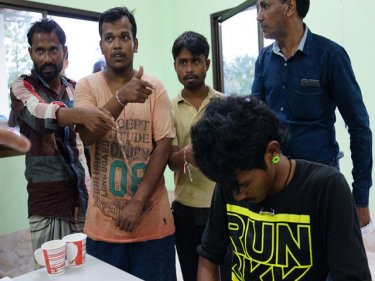
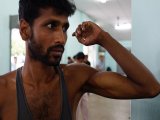

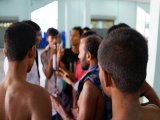
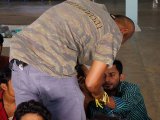


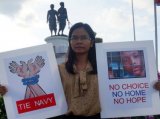
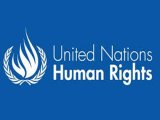




great article and Thailand needs to learn very quickly there days of covering stuff up is no more instant media and social media is here to stay
things in the past like the slaughtering of vietnamese boat people on samui for there possesions is no longer possible
Posted by Michael on October 14, 2014 15:11